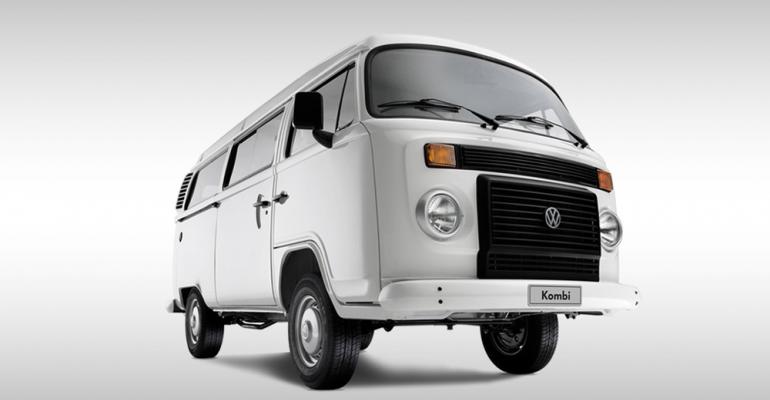SAO PAULO – New auto-safety standards may force some of Brazil’s most popular models off the streets in Latin America’s largest nation.
Brazilian automotive experts have said the new regulations, which will be enforced starting in 2014, will make commonly driven vehicles such as the Volkswagen Kombi unfit for driving and too costly to upgrade.
But the issue extends beyond older models. According to a report by Brazil’s Development Bank, cars made in the world’s seventh-largest auto manufacturing country are less safe than European and American models.
“Better car-safety legislation will (promote) better automobile-building conditions, but we also have to be aware that it’s not the only way to reduce deadly car accidents,” Rosan Jeisiel Coimbra, a Sao Paulo lawyer specializing in the auto industry tells WardsAuto.“The government has to provide better institutions related to car safety and make sure that those requirements are being followed by the automotive industry.”
Nevertheless, there have been substantial improvements in Brazilian vehicle-safety laws in recent years.
“Brazilian law meets international legislation in terms of car safety,” says Marcus Vinicius Aguiar, technical director at the Brazilian Engineering Automotive Assn. “From the point of view of the law, Brazil has achieved basic legal requirements from Europe and the United States, (whether) you talk about a frontal car-crash test or a rear-end crash test.”
The rules that will be enforced as of January 2014 will require front airbags and antilock braking systems on all new cars, features that have been standard for years on autos in most industrialized countries.
Part of the problem, Rosan Coimbra says, is that Brazil has not been forced to act because “there isn’t one international law about car safety.” The country opted not to abide by the United Nations Economic Commission for Europe’s World Forumfor Harmonization of Vehicle Regulations.
Brazil has been a member of the U.N. ViennaConvention on Road Trafficsince 1981, but it has not forced change in the country, because it lacks provisions on automotive “safety engineering, quality materials, methodology and process of fabrication.”
Child restraints have been mandatory since 2010 and a national drinking and driving law has been in effect since 2008, although only rarely has it been enforced successfully.
Maria Ines Dolci, president of the Brazil Consumers Assn. tells WardsAuto that auto makers say car prices could increase BR2,000 ($938) for every safety device installed, “and so it might affect car sales, but it is much cheaper than a life.
“Despite a potential increase in car prices in the beginning, it will have to decrease after a while because the demand will also increase and as a result the price must go down,” she says.
Luiz Moan Yabiku Jr., president of the National Auto Makers Assn., says car prices likely will rise, although he could not say by how much. “Brazilian cars are made by the rules, and there are other issues, such as driver’s imprudence, bad road conditions and drinking and driving, which contribute to these accidents,” he adds.
Auto makers are not keen to talk about this issue: BMW did not respond to a request for comment. General Motors Brazil also declined to comment, and a spokesman for China’s JAC, which will start building cars in Brazil in 2014, would not comment on locally made automobiles.
The Brazilian government maintains it will push auto makers to follow the safety rules. According to the World Health Organization, Brasilia wants to reduce the rate of traffic deaths from the current level of 21 per 100,000 people to 10 by 2014.
Without safer cars, “the price we all have to pay is very high,” consumer advocate Dolci says. “There are many deaths, suffering and economic (losses) from these accidents and it is unacceptable.
“The government’s priority must be vehicle safety, since every year more than 33,000 people die and around 400,000 get hurt or disabled after a car crash in Brazil.”
Safer vehicles also could have commercial benefits. The Brazilian government announced in April that a branch of the U.K.’s Vehicle Certificate Agency in Sao Paulo will help Brazilian auto makers secure international safety certification, which should help with exports.
“The British government is aware that the automotive sector in Brazil is continuing to grow” and so could use its VCA services, says Carlos Bonote, the organization’s South American vice president.





